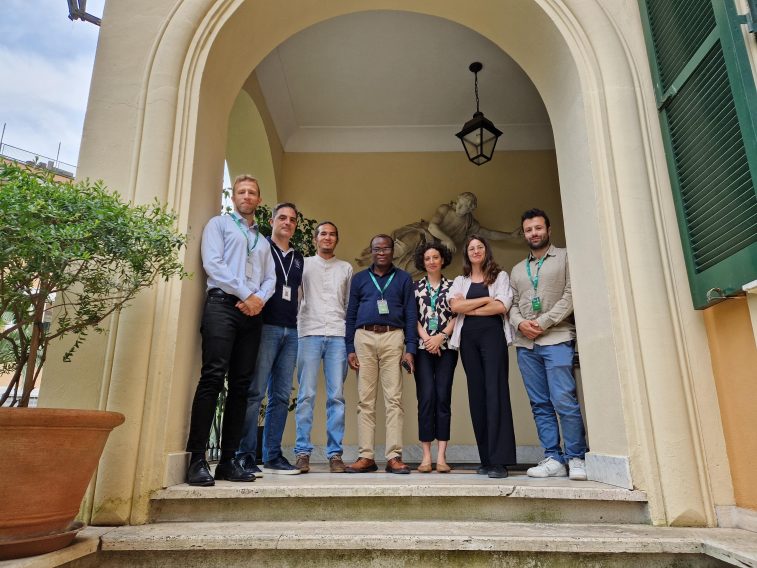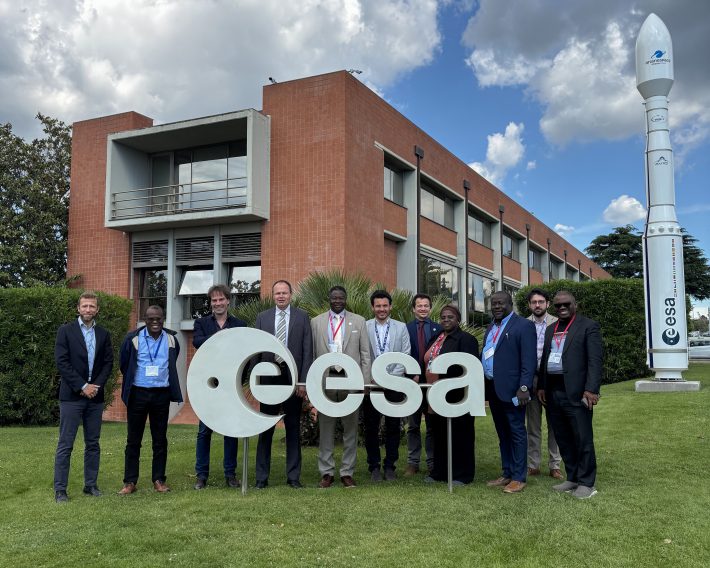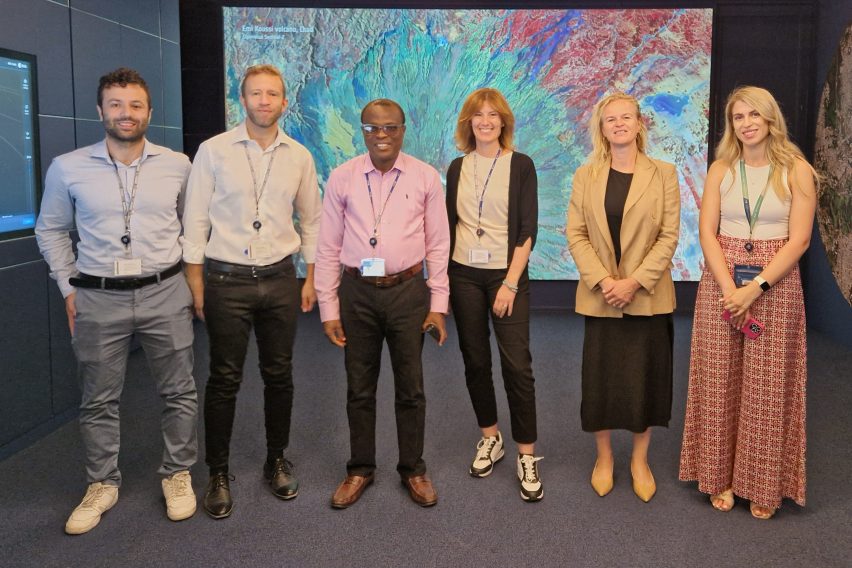The European Space Agency has welcomed the first International Visiting Experts under the new Integrated Policy Expert Scheme (IPES). This innovative scheme aims to bridge the gap between cutting-edge Earth observation (EO) solutions and international and European policies on environment and sustainable development.
The scheme fosters collaboration and further ensures that EO solutions are policy relevant and impactful, strengthening the partnerships with the involved entities and facilitating alignment of resources and investments. The IPES enables selected experts to work directly within an ESA team on defined tasks to accelerate the operational integration of Earth Observation data in support to policies and the empowerment of the end-users.
The first experts to join come from ARPA Lazio (Italy) and CGIAR–IITA (Nigeria), bringing unique expertise to environmental monitoring and food security innovation.
ARPA Lazio: strengthening water resilience and environmental monitoring
Federica Gobattoni, environmental manager responsible for EO activities in Agenzia Regionale Protezione Ambientale (ARPA) Lazio’s SAT (Servizio Attività Produttive e Controlli) working group, leads the agency’s engagement with ESA.
A newly established working group within SAT – part of the Dipartimento Pressioni sull’Ambiente – focuses on developing modular and repeatable methods to integrate EO solutions into routing environmental monitoring and control activities.
Dr Gobattoni’s background in environmental modelling and hydrology and her current role will be critical in advancing methodologies for integrating EO into routine environmental monitoring and control. Her IPES focus will be on sustainable water management in the face of climate change and increasing anthropogenic environmental impacts, in line with the 2025 European Water Resilience Strategy, recently launched by the European Commission. The strategy aims to tackle water scarcity in response to diverse water demands (agricultural, industrial etc.), enhance water management, and restore the water cycle.
Alongside Dr. Gobattoni, the second visiting expert from ARPA is Enrico Pisani. He will focus primarily on air quality. The objective will be to produce geospatial products that provide information on the impacts of human activities on the territory. In fact, one of ARPA Lazio’s main roles is to assess the extent to which industrial activities or other anthropic emission sources are responsible for environmental pollution. The work will focus primarily on the use of satellite remotely-sensed data from Copernicus satellites in combination with information provided by environmental modelling and on site monitoring and control activities carried out by ARPA Lazio. They will consolidate the needs from ARPA Lazio and address the approach for the long-term operational adoption of the EO-based solutions. At ESA, they will also interact with the IRIDE team to understand the potential of the future constellations and downstream services. Funded by Italy’s PNRR (National Recovery and Resilience Plan) and developed through the collaboration between ESA and ASI, IRIDE is an Earth Observation programme composed of multiple constellations designed to deliver high-resolution data to Italian public entities and authorities for environmental monitoring, disaster risk management, and climate resilience.
CGIAR-IITA: boosting agricultural sustainability in West Africa
Tunrayo Alabi, from the International Institute of Tropical Agriculture (IITA – part of the CGIAR network) in Nigeria, engages with CGIAR Governance Frameworks to accelerate the integration of EO data into operational practices and align research objectives with global agricultural policies and food security goals.
CGIAR (Consultative Group on International Agricultural Research) is a global partnership that brings international organizations to advance on food security. In this effort national and regional research institutes, civil society organizations, academia, as well as the private sector work together. CGIAR focuses on reducing poverty, improving food and nutrition security, and enhancing natural resources- and ecosystem-based services.
During his tenure at ESA, Dr Alabi focuses his work on food security and climate-resilient agriculture while fostering cross-institutional collaboration. He has also supported the establishment of a link with the CGIAR Alliance of Bioversity and the International Center for Tropical Agriculture (CIAT), setting the foundation for future cooperation on biodiversity monitoring and sustainable agriculture. He will also facilitate the dialogue with the International Maize and Wheat Improvement Center (CIMMYT), to explore synergies in crop health and yield improvement.

Additionally, the presence of Dr Alabi has further facilitated the dialogue between ESA and Nigeria’s national space agency, NASRDA (Nigerian National Space Research and Development Agency). A strategic meeting on 9 May at ESRIN also explored how space-based EO can address agricultural challenges in West Africa through localized and innovative solutions.
Dr Alabi states: “Being an IPES fellow has been an incredible journey that has greatly enhanced my skills in using Earth observation and advanced machine learning to tackle food security challenges in Africa. I’m truly thankful to ESA for the fantastic opportunity to attend the LPS 2025, which has been transformative. It has not only enhanced my research capabilities but also allowed me to connect with a wonderful network of passionate EO scientists”.

Featured image : At the centre: Tunrayo Alabi, CGIAR-IITA, and Federica Gobattoni, ARPA Lazio, visiting the Phi-experience at ESA-ESRIN.

